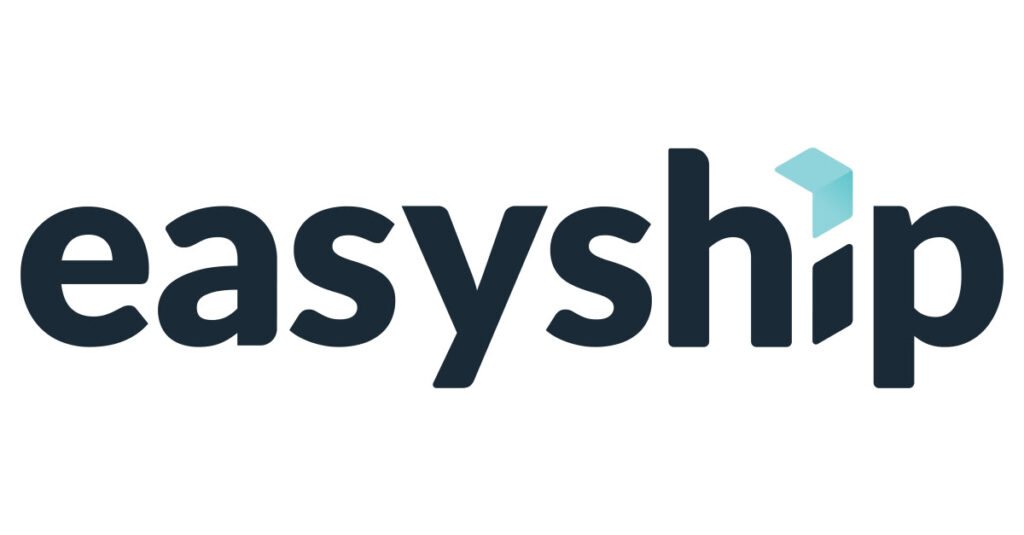In the fast-paced world of e-commerce, efficient shipping and order fulfillment can make or break your business. ShipStation has long been a go-to solution for managing shipping operations, but it’s not the only player in the game. If you’re on the lookout for a ShipStation alternative that can help you streamline your shipping processes and boost your e-commerce success, you’ve come to the right place. We’ve curated a list of top-notch ShipStation alternatives, each with its own unique features and capabilities.
ShipStation Unveiled

Before we dive into the world of ShipStation alternatives, let’s get a grip on what ShipStation has to offer, its limitations, and what sets it apart from the rest.
Features That Shine
ShipStation shines with a plethora of features designed to simplify your shipping operations. It offers multi-carrier support, batch processing, real-time order tracking, label printing, and seamless integration with various e-commerce platforms. Its user-friendly interface makes it a breeze to manage your orders, print labels, and provide a smooth customer experience.
With ShipStation, you can effortlessly compare shipping rates from different carriers, ensuring that you always get the best deal. This not only saves you money but also boosts customer satisfaction by offering competitive shipping options.
Limitations to Consider
While ShipStation is a robust solution, it’s not without its limitations. Some users have found that it may not be the most cost-effective option, especially for smaller businesses. It also lacks some advanced order management features that larger enterprises may require. Furthermore, the user interface, though user-friendly, may seem overwhelming at first.
For smaller businesses with limited budgets, the pricing structure of ShipStation can be a concern. While it offers a feature-rich platform, the cost may not be justifiable for those with fewer shipping needs.
What Sets ShipStation Apart?
ShipStation’s strength lies in its user-friendliness and versatility. It caters to businesses of all sizes and provides a reliable way to manage shipping tasks. Its seamless integrations, real-time order tracking, and label printing capabilities give it a competitive edge in the market.
The real-time order tracking feature, for example, allows you and your customers to keep an eye on shipments at all times. This transparency enhances trust and ensures that customers are well-informed about their deliveries.
The Need for ShipStation Alternatives

While ShipStation is undoubtedly a strong contender, there are reasons you might be considering ShipStation alternatives. Perhaps you’re looking for a more budget-friendly option, or maybe you need specific features that ShipStation doesn’t offer. Whatever your reasons, we’ve got you covered with a list of some of the best ShipStation alternatives available.
1. Cost-Effective Solutions
For businesses with tight budgets, cost-effectiveness is a top priority. ShipStation’s pricing structure may not align with smaller businesses’ financial plans. Exploring cost-effective ShipStation alternatives can help you find a solution that doesn’t break the bank while meeting your shipping needs.
2. Specialized Features and Customization
Every e-commerce business is unique, and you may have specific shipping requirements that ShipStation can’t fully address. Whether it’s advanced inventory management, niche order routing, or international shipping, seeking ShipStation alternatives with specialized features can be the key to optimizing your operations.
3. Scalability and Business Growth
As your e-commerce venture grows, your shipping needs are likely to expand as well. Ensuring that your chosen shipping solution can scale with your business is essential. ShipStation alternatives that offer scalability and accommodate your growth are worth exploring to avoid frequent platform changes.
4. Streamlined User Experience
While ShipStation is known for its user-friendly interface, you may find that some ShipStation alternatives offer an even more streamlined user experience. Choosing an alternative with an intuitive interface can boost your team’s efficiency and reduce the learning curve, ensuring a smooth transition.
Commonly Used ShipStation Alternatives

Let’s explore the top ten ShipStation alternatives that can help you manage your shipping and order fulfillment needs:
1. ShipBob
ShipBob combines powerful shipping software with a network of fulfillment centers, making it a standout choice for e-commerce businesses. Their strategically located warehouses ensure faster shipping times, while their software simplifies order management and tracking.
With ShipBob, you can take advantage of their extensive network of fulfillment centers, allowing you to store inventory closer to your customers. This leads to quicker shipping and reduced shipping costs.
2. ShipRush
ShipRush excels in automating your shipping tasks. It integrates seamlessly with multiple e-commerce platforms and carriers, offering features such as batch processing, rate shopping, and order tracking.
ShipRush’s batch-processing feature is a game-changer when you have a high volume of orders to fulfill. It streamlines the shipping process, saving you valuable time and reducing errors.
3. ShippingEasy
ShippingEasy is a cloud-based platform that integrates with various e-commerce platforms and multiple shipping carriers. It provides order management, label printing, discounted shipping rates, and comprehensive reporting.
ShippingEasy simplifies shipping label printing and offers discounted rates through its carrier partnerships. The reporting feature allows you to gain insights into your shipping operations and make data-driven decisions.
4. Stamps.com
Stamps.com is a trusted name in postage and shipping solutions. It offers integration with popular e-commerce platforms, along with features like postage printing, shipping label creation, and shipment tracking.
Stamps.com’s postage printing feature is a time-saver. You can print postage labels directly from your computer, eliminating the need for trips to the post office.
5. Shippo
Shippo is known for its versatility. It integrates with many e-commerce platforms and carriers, offering features such as multi-carrier support, real-time rate comparisons, and address validation.
With Shippo’s multi-carrier support, you can compare shipping rates in real time, ensuring you choose the most cost-effective option for each shipment.
6. Easyship
Easyship specializes in international shipping, connecting businesses with a broad range of global and local carriers. It provides real-time shipping rates, label printing, and customs documentation to streamline cross-border shipping.
If your business frequently ships internationally, Easyship’s expertise in this area can save you from the complexities of customs documentation and ensure a smooth shipping experience for your customers.
7. Ordoro
Ordoro is an all-in-one platform that combines order and inventory management with shipping capabilities. It offers features like order routing, dropshipping support, and integrations with multiple shipping carriers.
Ordoro’s order routing feature allows you to set specific rules for how orders are processed. This can be invaluable in optimizing your shipping process and ensuring orders are fulfilled efficiently.
8. ShipHero
If you manage your fulfillment operations, ShipHero is an excellent choice. It provides robust inventory management, real-time order tracking, and order routing features.
ShipHero’s real-time order tracking feature lets you keep a close eye on your orders and inventory. This can help prevent stockouts and provide accurate delivery estimates to your customers.
9. Shiplark
Shiplark is a flexible shipping software solution. It integrates with various e-commerce platforms and carriers and offers batch processing, label printing, and order tracking.
Batch processing in Shiplark simplifies the task of shipping multiple orders at once. This is especially useful during peak seasons or sales events.
10. Fishbowl ShipExpress
Fishbowl ShipExpress is a seamless addition to the Fishbowl Inventory management system. It provides shipping, order tracking, and address verification to enhance your order fulfillment processes.
With Fishbowl ShipExpress, you can verify addresses to prevent shipping errors and ensure deliveries reach the intended recipients without any hiccups.
Factors To Consider While Choosing The Perfect ShipStation Alternative

Selecting the right shipping solution is crucial for your e-commerce success. Here are some key factors to keep in mind when evaluating ShipStation alternatives:
1. Integration Capabilities
Ensure that the alternative you choose seamlessly integrates with your e-commerce platform, carriers, and other essential tools in your tech stack. A smooth integration will streamline your operations and reduce manual data entry.
When assessing integration capabilities, consider the e-commerce platforms you use and the shipping carriers you rely on. An alternative that offers pre-built integrations with these platforms can save you time and effort. Look for features like automated order syncing, which can prevent errors and streamline your order fulfillment process. Additionally, ensure that the ShipStation alternative is compatible with any third-party software or plugins your business relies on for additional functionality.
2. Cost-effectiveness
Consider your budget and the cost of the alternative. Compare pricing plans, including any hidden fees, and evaluate whether the solution offers good value for your business. Cost-effectiveness doesn’t just mean choosing the cheapest option but finding the best value for the features you need.
When assessing cost-effectiveness, look beyond the base pricing. Evaluate any additional fees for exceeding order limits, premium features, or specialized services. Consider whether the ShipStation alternative offers volume discounts or lower shipping rates through its carrier partnerships. Balancing cost with the features that matter most to your business is essential. Remember that the cheapest solution may not always be the most cost-effective if it lacks critical features.
3. Scalability
Think about your business’s future growth. Will the alternative be able to scale with you, accommodating more orders and features as you expand? Scalability is crucial, so you don’t have to switch to a new solution as your business grows.
When considering scalability, envision the growth trajectory of your e-commerce business. Does the alternative offer tiered pricing or flexible plans that can accommodate your increasing order volume and additional users? Look for features that can support your expansion, such as inventory management capabilities, multi-location support, and advanced reporting. A scalable solution should adapt to your evolving needs, saving you the hassle of migrating to a new platform when your business takes off.
4. Specialized Features
Identify any unique requirements your business has, such as international shipping, inventory management, or advanced order routing. Look for an alternative that caters to these needs. Don’t settle for a one-size-fits-all solution if your business has specific requirements.
When exploring specialized features, prioritize your business’s distinct needs. If you frequently ship internationally, consider ShipStation alternatives with built-in customs documentation and international shipping carrier integrations. For businesses dealing with complex order routing, look for solutions that allow you to set custom rules and automate the process. Evaluate each alternative’s feature set and ensure it aligns with your business’s specific needs and goals. Customization and flexibility in features can be the key to a smooth and efficient operation.
5. User-Friendly Interface
A user-friendly interface can significantly impact your day-to-day operations. Choose an alternative that your team can easily adapt to and utilize without extensive training. This will save you time and reduce errors in the long run.
When assessing the user-friendliness of an alternative, consider the learning curve and the onboarding process. Look for intuitive interfaces that require minimal training for your team. User-friendly alternatives often offer customizable dashboards, clear navigation, and helpful tooltips or guides. Ensure that the ShipStation alternative provides excellent customer support or resources to assist your team in using the platform effectively. A user-friendly interface can enhance productivity and minimize mistakes, contributing to a seamless transition to the new solution.
Conclusion
In the world of e-commerce, efficient shipping, and order fulfillment are vital to your business’s success. ShipStation is undoubtedly a strong player, but there are alternatives that might better suit your specific needs and budget. We’ve explored ten top alternatives, each with its own strengths and features. When making your decision, consider factors like integration capabilities, cost, scalability, specialized features, and user-friendliness to find the perfect ShipStation alternative that will help your business thrive.









